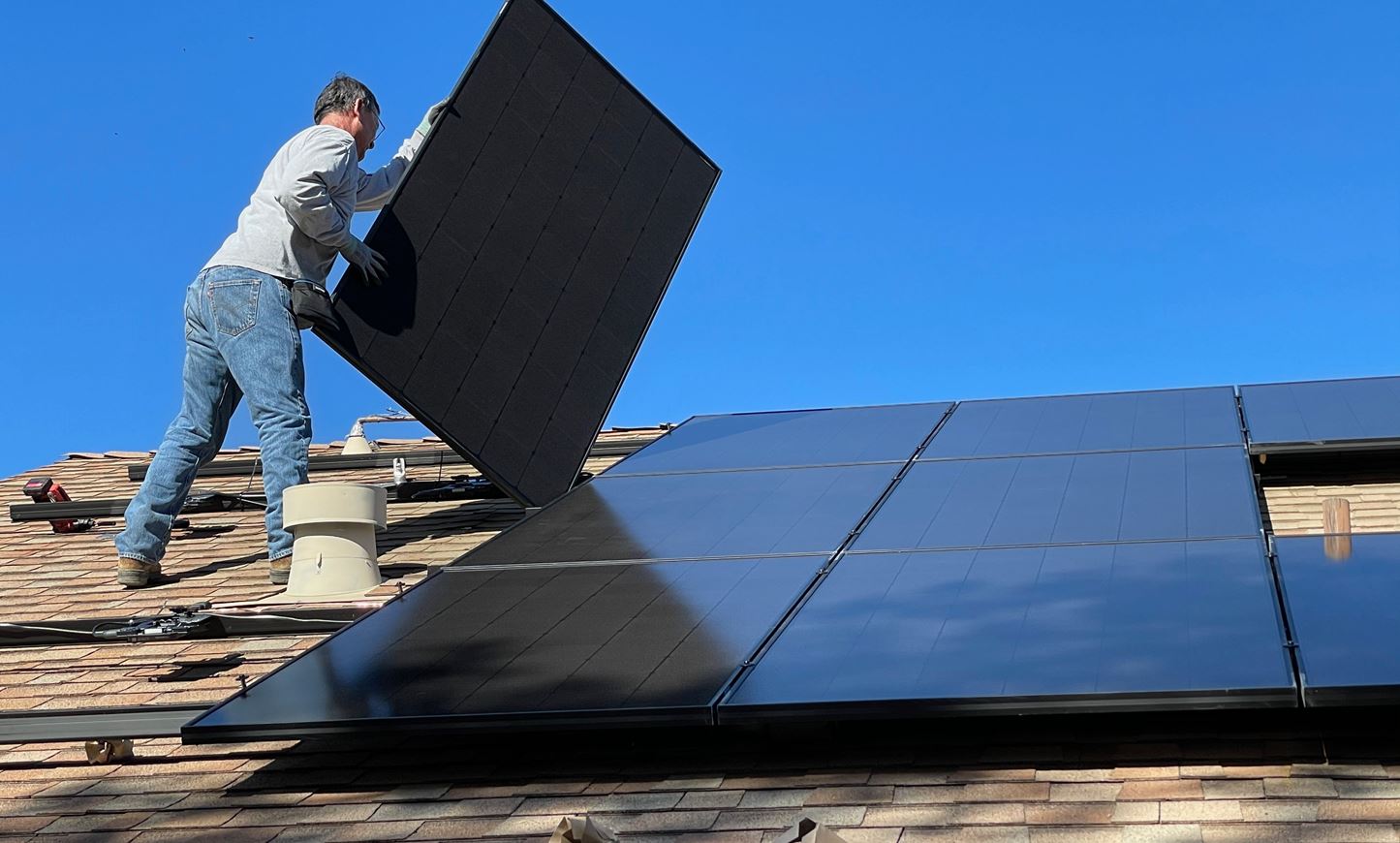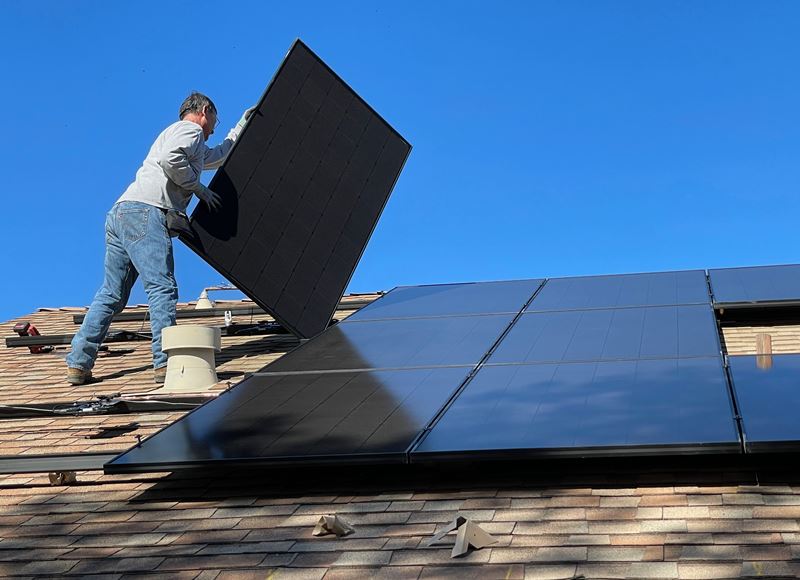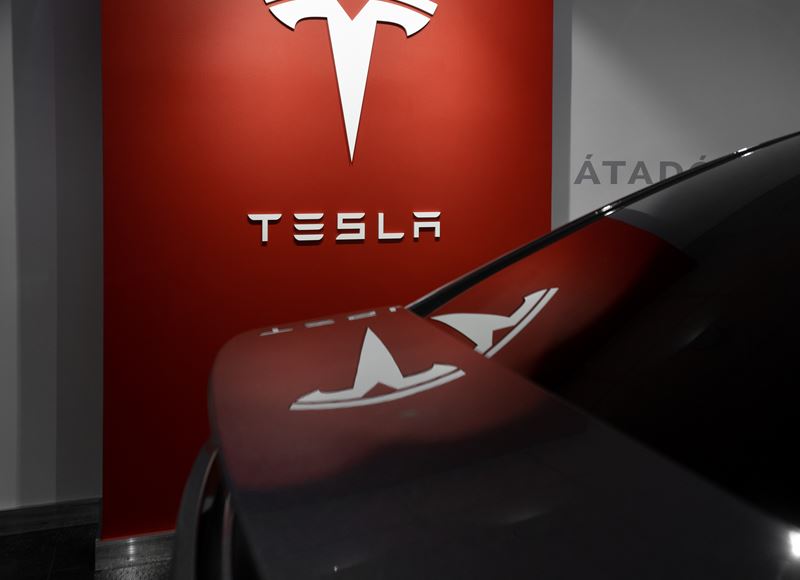Renewables

It’s possible to generate your own electricity or heat from renewable sources of energy. With such a variety of different technologies available, each with their own distinct benefits and considerations, you might be wondering where to start.
Let us guide you through some of the basics.
-
Air source heat pump
They use the energy stored in ambient air for your heating and hot water and are up to 3 times more efficient than traditional systems.
Heat pumps are technically suitable for many households, but you will need some outdoor space, and space inside for a hot water tank.
-
Solar
Solar electricity panels, also known as photovoltaics (PV), capture the sun’s energy and convert it into electricity that you can use in your home. You'll need a more or less south-facing, unshaded roof or garden area. You'll then need to think about your current electricity demand and what size of system you might need. Please note we that we currently do not supply and install solar PV, but we do offer a maintenance and repair service.
-
Solar thermal
Solar water heating systems, or solar thermal systems, use energy from the sun to warm water for storage in a hot water cylinder or thermal store. Because the amount of available solar energy varies throughout the year, a solar water heating system won’t provide 100% of the hot water required throughout the year. A conventional boiler or immersion heater is normally used to make up the difference.
-
Wind
Domestic-scale wind power is likely only suitable for rural and exposed homes in the UK
-
Biomass
The main requirement for a biomass heating system is lots of space. Space for the boiler itself, but also enough room for storing the wood pellets, too.
-
Ground source heat pump
Heat pumps are technically suitable for many households, but you will need some outdoor space, and space inside for a hot water tank. Ground source heat pumps will need extensive land, to bury the ground loop in a trench or borehole.

Please be aware that Guernsey Electricity currently do not supply and install solar PV, but we do offer a maintenance and repair service.
For a list of other local installers, please click the link below

You’ll need to consider what’s possible for your home. Some technologies just simply won’t be compatible – for example, a ground source heat pump will require a large outdoor space. If you don’t have a garden, then this won’t be suitable for you.
Once you’ve narrowed to a list of technologies that are possible, you can then rank them based on how well they would perform for your energy needs. Are you looking to save energy and make your home more sustainable, or looking for which technology could save you the most money? Should the system provide all of your energy needs, or will it work in support with another?

There are no subsidies or incentives offered by the States of Guernsey for renewable energy systems. There is a single-rate tariff for customers with private generators (such as solar panels) who want to sell their excess units to Guernsey Electricity

Electrical batteries help you make the most of renewable electricity from solar photovoltaic (PV) panels, a wind turbine or a hydroelectricity system. For example, electricity generated during the day by solar PV panels could be stored in an electric battery for you to use for boiling the kettle or watching TV in the evening when your solar PV panels are no longer generating electricity.
The battery size and its cost will depend on your current energy use and the size of any generation technologies you have installed. You may also want to plan around future electricity use if you are intending to purchase an electric vehicle (EV) or heat your home with a heat pump.
How much will it cost?
The cost of your system will be dependent on a number of factors, and the best way to get an idea of how much your system will cost remains to look for at least three independent quotes. Your installer should also advise you of any likely associated maintenance costs.
The Energy Saving Trust have researched indicative costs for typical installs to help provide you with a guide to what to expect.
-
 4 April 2025
4 April 2025Monthly Meets - Meet Carl
This month, we're heading to the heart of our island's electricity network: the Vale power station control room. -
 28 March 2025
28 March 2025Don’t forget – the clocks are springing forward!
Spring is here, meaning the clocks will spring forward an hour at 1am on Sunday 30 March 2025. So, don’t forget to change your clocks – including your boiler and heating – before you head to bed. -
 24 March 2025
24 March 2025How to heat off-peak
Others bank their cheap, low-carbon electricity overnight for heating. When will you?
Details
It’s likely we’ll need to visit your home to provide a quote, and to carry out the work you need.
Please let us know when would be most convenient for you. We may not be able to commit to the date and time depending on our schedule, but we’ll do our best to fit in with you.










